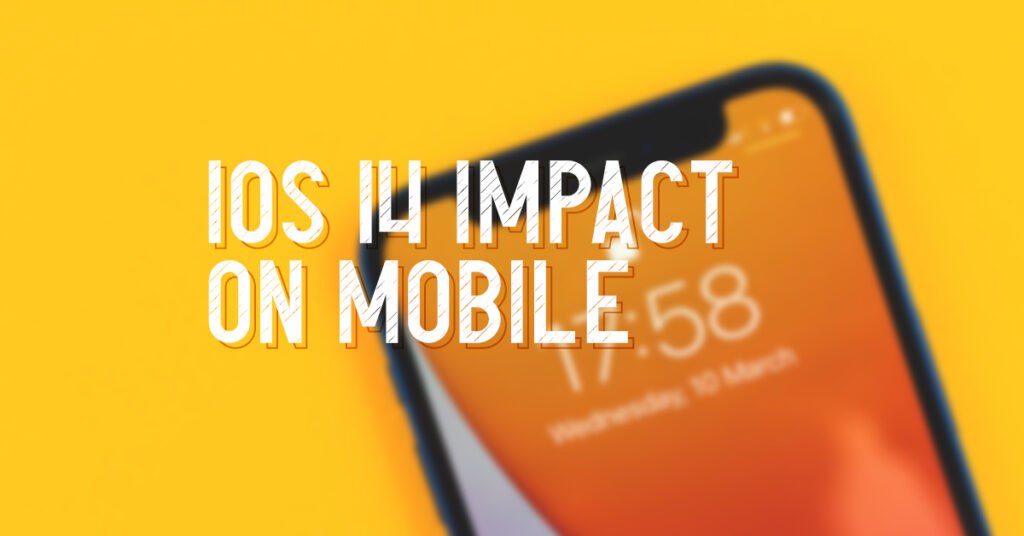2021 and beyond is shaping up to be a massive transformation for user privacy related to digital advertising. To kick off this transformation, Apple has rolled out their iOS 14.5 update, which includes changes to their privacy and data sharing policies, also known as Apple’s App Tracking Transparency Framework (ATTF).
These changes to Apple’s ATTF and the future loss of third-party cookies are the beginning of changes that will affect ad addressability, measurement, and attribution. Marketers of all sizes are looking to understand better how Apple’s changes to ATTF will impact the performance and attribution of their mobile advertising.
Jump to:
What is changing with Apple’s ATTF?
What does this look like for consumers?
What is the impact of iOS 14 on mobile advertising?
What changes should marketers make to their mobile advertising campaigns?
What is an IDFA?
To understand the impact of Apple’s changes on mobile advertising, you need first to understand how targeting works on mobile devices.
Identifier for Advertisers (also known as IDFA) is a combination of letters and numbers designed to identify a specific iOS device (including iPhones, iPads, and Apple TVs). Previously, an IDFA was sent by the app by default when a user downloads or engages with the app, but now, app developers will be required to accept tracking. It’s important to note that Android devices don’t use an IDFA, instead, using a GAID, aka ‘Google Advertising Identifier.
The IDFA and all mobile app IDs (MAIDs) allow apps to serve personalized and target ads to users within iOS apps and measure campaign performance for marketers. The IDFA keeps the user’s identity private while attributing their actions across apps and websites to a single ID that can be tracked by marketers, app developers, and mobile ad networks.
What is changing with Apple’s ATTF?
Starting Spring 2021, Apple will continue rolling out their iOS 14 update, which includes changes to their privacy and data sharing policies, also known as Apple’s App Tracking Transparency Framework (ATTF). Apple’s goal is to give users a more transparent choice to protect their privacy and information. Over the next several months, app developers will include a notification upon installation asking if the user consents to data sharing and tracking. This release marks another step in the industry’s continued trend away from device and browser identifiers such as cookies and mobile IDs.
What does this look like for consumers?
App developers will now have to ask users upon installation if they consent to data sharing and tracking. Apps will now offer the option in order to comply with the iOS14 update. This notification will be available upon updates of Browser apps like Chrome and Mobile apps browser-level like NYT, WSJ, etc.


What is the impact of iOS 14 on mobile advertising?
Before the iOS14 release, there have been several predictions on the impact of opt-out rates due to Apple’s App Tracking Transparency Framework (ATTF). Based on a Singular report, trends show that users are less likely to limit ad tracking, starting with ~30% of users’ limited ad tracking. At the same time, more users (70%) have opted out of location tracking for app developers. Just like the upcoming deprecation of third-party cookies, a reduction in identifiers for advertisers (IDFAs) is the continuation of the trend away from device and browser identifiers, such as cookies or people-based identifiers like email addresses.
As users start to download Apple’s new operating system, marketers could see their campaigns’ reach and scale slightly reduce in the short term. Additionally, campaigns that leverage cross-device tracking, even if they aren’t exclusively bidding on mobile inventory, could also see a reduction in scale.
It is essential to note that Apple’s App Tracking Transparency Framework (ATTF) will only be available to iOS 14.5 users, and the opt-out rate is unknown. With this in mind, all marketers need to monitor their data over the coming weeks to understand the update’s impact. Keep an eye on your iOS ad performance to prepare for the full update as it rolls out, and be ready to adjust your campaign if necessary.
What changes should marketers make to their mobile advertising campaigns?
Advertising tracking and measurement have been experiencing a slow transformation for a long time, and Apple’s ATTF privacy measures are just another stage of this process. This policy mirrors other tracking policies across the industry, including Google’s Privacy Sandbox, which moves marketers’ focus away from granular user-level measurement towards a broader-level measurement view.
For marketers targeting specific in-app inventory, here are a few steps we recommend you can take as a result of this change:
- Use third-party data targeting segments that have mobile-specific audiences which are based on people-based identifiers like email addresses. Mobile-first data partners like Mobilewalla, 42matters, AlikeAudience, Cross Pixel, Factual, Kochava Collective, oneAudience, PushSpring, and TrueData can provide solutions.
- Use your CRM lists to enable first-party targeting to access in-app mobile inventory. Through CRM onboarding, your audience will be mapped using LiveRamp’s Identity Graph, which will allow you to target without relying on cookies or mobile IDs.
Want to learn more about first-party data opportunities?
Read our blog post: The first-party data opportunity with CCPA, GDPR & more.





